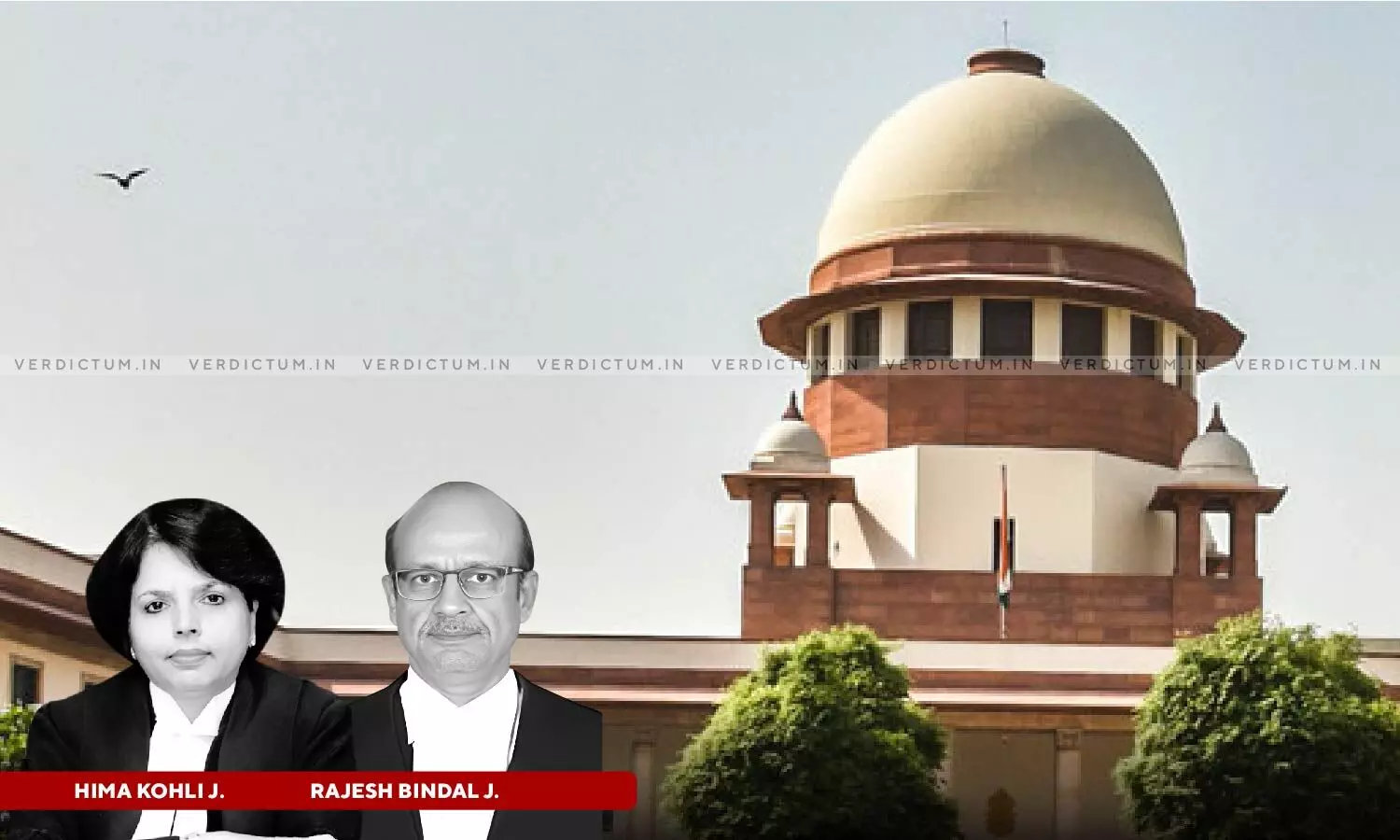
Burden Lies Heavily On Party Who Seeks To Question Cohabitation And To Deprive Relationship Of A Legal Sanctity: Supreme Court
 |
|The Supreme Court allowed the appeal of a wife, whose husband (who was in the army) had married her while still being legally married to another woman but had divorced that woman and the husband had named the wife as his legal heir.
The Court reiterated that there is a legal presumption in favour of a marriage when a man and woman have lived together for a significant period of time and that anyone seeking to challenge the validity of such a relationship bears a heavy burden of proof to rebut this presumption.
The Bench comprising Justice Hima Kohli and Justice Rajesh Bindal observed, “It can be discerned from the aforesaid line of decisions that the law infers a presumption in favour of a marriage when a man and woman have continuously cohabitated for a long spell. No doubt, the said presumption is rebuttable and can be rebutted by leading unimpeachable evidence. When there is any circumstance that weakens such a presumption, courts ought not to ignore the same. The burden lies heavily on the party who seeks to question the cohabitation and to deprive the relationship of a legal sanctity”
Advocate Rahul Joshi appeared for the Appellants and Additional Solicitor General K.M. Nataraj appeared for the Respondents.
Background:
Late Subedar Bhave got married thrice and his first wife, Parvati, died after two and a half years. He then married Anusuya, but they divorced in 1990. During the subsistence of his marriage with Anusuya, he married the Appellant herein and the Appellant and Subedar Bhave had two children together. Subedar Bhave was granted a service pension after he was discharged from the army in 1984 and he approached the Respondents to delete the name of Anusuya from his PPO and endorsed the name of the Appellant. The Respondents refused to do so, as Subedar Bhave had divorced the appellant in 1990.
Subedar Bhave died in 2001 and the Appellant then approached the Respondents for a family pension. The Respondents refused, as they claimed that Anusuya was the legal heir of Subedar Bhave. The appellant filed a civil suit for declaration and a direction to the respondents to disburse the pensionary benefits. The Civil Judge (Senior Division) ruled in favour of the Appellant, holding that she was entitled to receive the terminal benefits of Subedar Bhave. The Respondents appealed the decision which was allowed, setting aside the previous order and the Appellant then filed a regular second appeal before the High Court which was also dismissed. The Appellant was, therefore, before the Apex Court challenging the order of the High Court.
The Supreme Court noted that under Section 114 of the Evidence Act, the presumption of a valid marriage may be drawn if a man and woman cohabit as husband and wife for an extended period, however, this presumption is rebuttable, and the onus of proving that no marriage took place falls heavily on the party seeking to challenge the relationship's legal origin. The Court observed this while referring to Tulsa and Others v. Durghatiya and Others [(2008) 4 SCC 520].
“It is true that there would be a presumption in favour of the wedlock if the partners lived together for a long spell as husband and wife, but, the said presumption is rebuttable though heavy onus is placed on the one who seeks to deprive the relationship of its legal origin to prove that no marriage had taken place (refer: Tulsa and Others v. Durghatiya and Others)”, the Bench noted.
Therefore, the Court held that Appellant is entitled to receive the pension payable on the demise of Late Subedar Bhave and that as for appellants No. 2 and 3 i.e., their illegitimate children, they would be entitled to the said relief till the date they attained the age of 25 years.
Accordingly, the Court allowed the Appeal and set aside the order.
Cause Title: Smt. Shiramabai W/O Pundalik Bhave & Others v The Captain, Record Officer For O.I.C. Records, Sena Corps Abhilekh, Gaya, Bihar State And Another (2023 INSC 744)